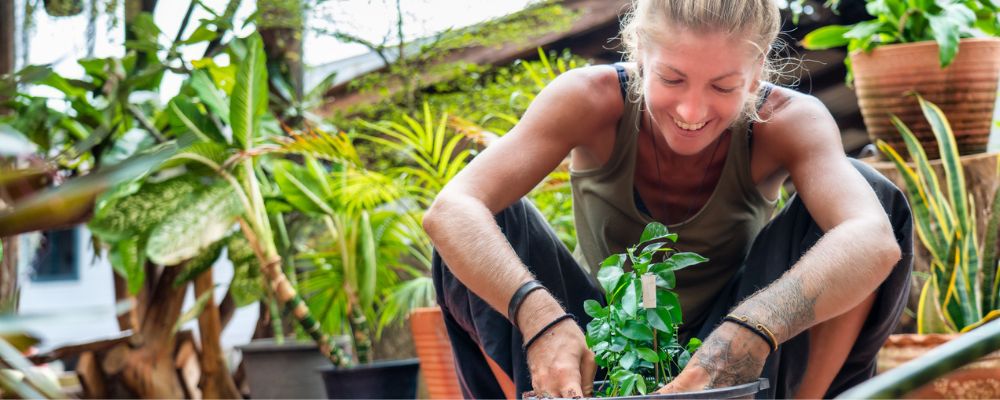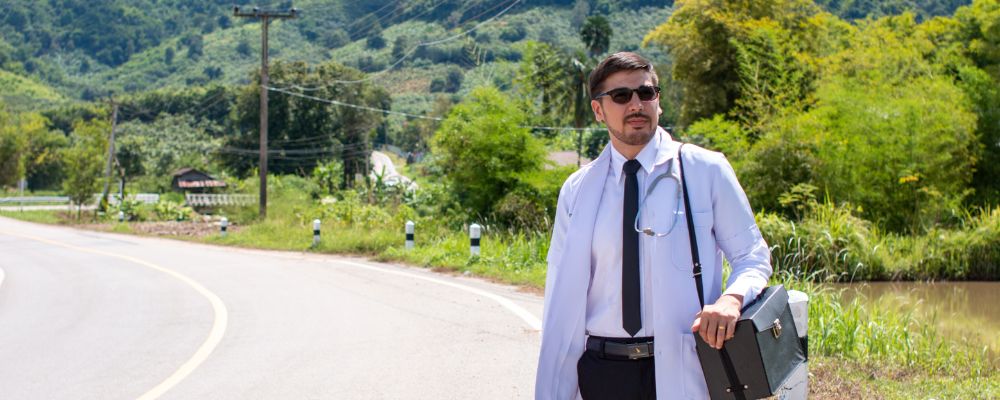
Voluntourism
Solo travel with the purpose of exploring the corners of the world is always a tempting adventure – but taking time off work or travelling without meaningful purpose can become under-stimulating and disheartening for some.
In a time where many strive to make meaningful connections and travel ethically, voluntourism is front of mind for a lot of people. Pushing the boundaries of traditional tourism by allowing travellers to immerse themselves in other cultures while giving their time and effort to make a difference is appealing for a range of people.
Controversies have been raised about the ethical responsibility of voluntourism and how much help voluntary work abroad can actually provide (some programmes can even do more harm than good) to local communities and cultures. Our guide outlines how to embark on your voluntourism journey ethically and things to consider when looking into your next solo travel trip!
Types of volunteering
If you’re wanting to volunteer overseas or across Australia and New Zealand, there are a plethora of options and companies out there that offer great volunteering opportunities for travellers, so you’ll need to decide what type you’re interested in before you set off. We’ve outlined the types of volunteer work and the different platforms you can start exploring for your next adventure:
Workaway and WorldPackers
Sites like WorldPackers and Workaway offer volunteering opportunities that are often in exchange for accommodation and/or meals. This is a community-based site, so anyone has the ability to post the work they need doing and what they’ll provide in exchange. This can mean you’re cutting out the ‘middle-man’ and going direct to the provider.
Sites like these often require a yearly registration fee to browse the placements but there usually aren’t any program costs once you’ve chosen a job. Each post should outline the work you’re required to do and if you’ll need any specific skills to carry out the tasks.
Be sure to read reviews of past volunteers as you may not be protected by the site should the unexpected occur.
Skilled Volunteering
If you’re trained in a certain area and your skills are desired by non-profit organisations or communities, you may be able to undertake skilled volunteering, making use of your training or qualifications. These types of volunteering can also be known as ‘expertise-based’ or ‘pro-bono’. Programmes that involve teaching, carpentry, nursing or other medical fields are common, but even people skilled in marketing, graphic design, legal services and project management can often find roles in programmes. This collaborative approach helps bridge the gap between skilled individuals seeking to make a meaningful contribution and organisations requiring specialised support to fulfil their missions.
Government and Humanitarian Aid
Programmes such as Doctors Without Borders or Government run aid programs focus on areas or situations where real aid or relief is required. Projects could involve disaster response, community development, healthcare initiatives or education programmes. This form of volunteering often requires a longer-term commitment as the nature of the work may be complex and ongoing. You’ll get an opportunity to work directly with local populations, understand diverse cultures and contribute to development goals.
Tour Operators
Whilst some tour operators offer volunteering as part of their wider trips, you may want to proceed with caution. Volunteering opportunities are often ‘tacked on’ to create appeal for their programmes, and because they are very short lived (usually a day or so) there isn’t a lot of positive impact in these programs. Do your research and weigh up the options – if you’re short on time, perhaps it’s better to keep your holiday to a holiday and focus on volunteering in other areas to be sure you’re making a real difference.
Common places to volunteer overseas
So you’ve picked the type of volunteering you’d like to do on your next trip – great! Now to decide the best corner of the world to do it in. We’ve outlined some of the most common places to start your volunteering journey.
Ghana. Ghana is known for its welcoming culture and volunteers will often engage in opportunities to enhance educational opportunities and contribute to community development.
Thailand. Thailand often attracts volunteers for teaching English, supporting conservation efforts or contributing to various community initiatives. Not only is Thailand a great place to volunteer for it’s enriching culture, it also boasts lush scenery and a plethora of activities to keep you busy.
Costa Rica. The focus for volunteers in Costa Rica is often on environmental conservation, with wildlife protection being the most popular. The inspiring biodiversity and commitment to sustainability appeals to those interested in protecting our natural world.
Fiji. Being an island, marine conservation is a key focus for volunteers in Fiji. Surrounded by pristine beaches, Fiji locals provide warm hospitality and an invite into their sacred culture while volunteers spend their time in programmes assisting marine wildlife.
Travel and volunteering: Things to remember
To ensure you’re choosing an ethical path to voluntourism, we recommend keeping the following things in mind before choosing your big adventure:
- Consider the duration of your stay – longer stays mean you’re able to build more meaningful connections and complete larger tasks.
- Do your research to choose meaningful organisations – it goes without saying that you should extensively research and conduct your own checks on organisations to ensure they’re working to empower local communities and cultural centres and involving them in any decision making.
- Take time to learn about the local culture and practices – before committing to your programme, focus on learning about the culture, community and any regular practices. Know that you’ll be immersing yourself into a different way of life and be confident that you’re ready to experience new cultural traditions.
- Set your expectations – related to the above point about duration of your stay, be realistic about the impact you’ll be able to have during your programme. It’s helpful to understand that real, impactful change often takes long-term collaborative efforts.
- Consider the impact of working with children – oftentimes, working in orphanages can encourage the separation of children from parents and create a ‘market’ for voluntourism that affects the local communities and family structures. If working with children is your specialty, ensure that intended programmes are researched extensively and consider the risk of exploitation.
- Look for financial transparency – some programmes are known for having hidden fees or costs that might not be transparent on first look. Make sure you’re aware of all costs involved in your trip to avoid any surprises later down the track!
- Ensure your travel insurance covers activities on your trip – make sure you’ve got comprehensive travel insurance for the duration of your trip and that any activities involved in your program are covered. Read the policy wording carefully before choosing your cover.
Embarking on your next adventure while volunteering abroad holds the promise of being a mutually beneficial journey – a pathway towards positive change for both parties involved. By embracing cultural sensitivity, ethical research and mindful engagement, voluntourism can evolve into a force for sustainable development and we can match up travelling with making a real difference.
The content of this article is general and provided for information purposes only. Southern Cross Travel Insurance (SCTI) doesn’t guarantee or warrant the accuracy, completeness or currency of any article.
This article may contain hyperlinks to other websites owned or operated by third parties, or references to third party products or services. SCTI isn’t responsible for, and makes no recommendation about, the content or accuracy of any third party website, or for the suitability or performance of any product or service. The inclusion of a link in this article doesn’t imply that SCTI endorses the website or third party product/service.








